Rofaida Elzubair
rofaida.elzubair@redcross.org
Washington DC, United States
Rofaida is supporting the information and knowledge management needs of the Global Disaster Preparedness Center (GDPC)
She has six years of experience in the nonprofit sector and has earned a Master’s Degree in Information Technology Management from the University Technology Malaysia. She has worked in nonprofit organizations, government entities, and private sectors as well. She also has experience in health informatics, knowledge management, business analysis, and data management.
Rofaida is a good volunteer that enjoys participating in community events and human aids, and she has been engaged in different activities and community service programs throughout her career. In 2012, Rofaida became a founding member of the Sudanese Knowledge Society SKS, which focuses on enabling people of Sudan to utilize the concepts, methods, and values of the knowledge society. She is particularly interested in ICT for development and knowledge management.Rofaida is always eager to learn new things that relate to her field, and she also loves traveling, reading, and event planning activities.
Research
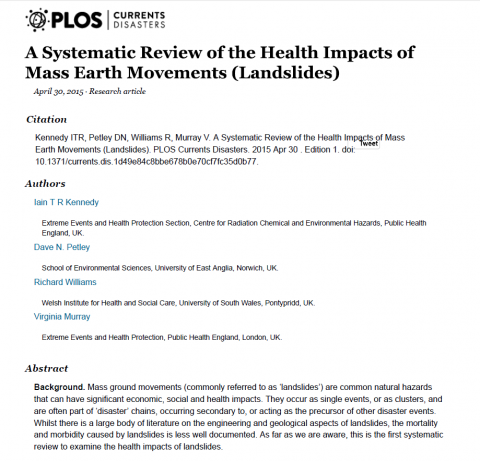
Mass ground movements (commonly referred to as ‘landslides’) are common natural hazards that can have significant economic, social and health impacts. They occur as single events, or as clusters, and are often part of ‘disaster’ chains, occur...
Guidance material
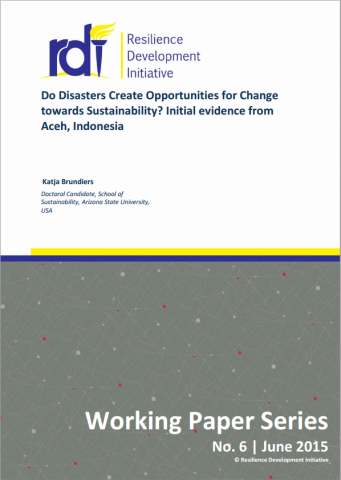
In recent years, the European higher education community has played an increasingly important role in moving disaster science from a responsive, primarily technical discipline, to a broad, multi-disciplinary movement that seeks to build societal resi...
Other type of resource
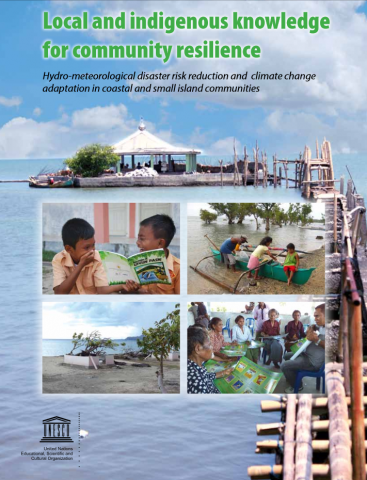
Coastal communities living in archipelago countries and small island states in Asia are particularly vulnerable to the impacts of hydro-meteorological hazards such as storms, droughts, landslides, and floods. Environmental degradation such as defor...
Research
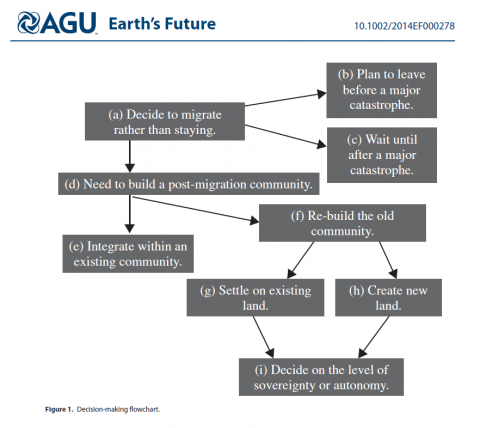
The impacts of climate change on Small Island Developing States (SIDS) are leading to discussions regarding decision-making about the potential need to migrate. Despite the situation being well-documented, with many SIDS aiming to raise the topic to ...
Assessment or evaluation
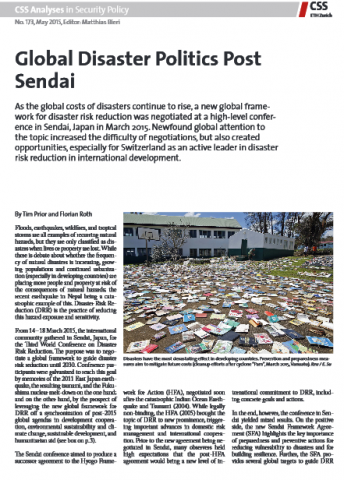
As the global costs of disasters continue to rise, a new global framework for disaster risk reduction was negotiated at a high-level conference in Sendai, Japan in March 2015. Newfound global attention to the topic increased the difficulty of negotia...
